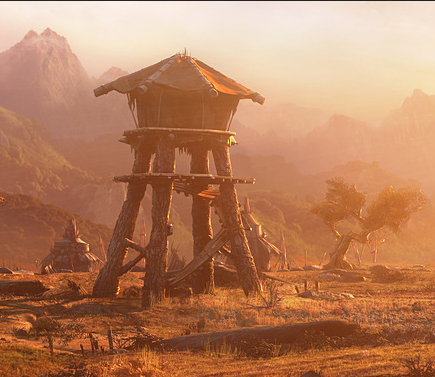How do Japanese live this long?
- If it’s being close to nature, then many countries have beautiful isolated area from modern life.
- If it’s about diet, then what’s so special? African countries have simple and natural diet too, why doesn’t that work?
Oof
If you want a chaotic answer to this, Yes Theory has made 2 episodes specifically on a region in Japan and Italy where people get really old.
Spoiler: their conclusion was happiness and a little bit of carelessness, but the video included a lot of different aspects.
Stress is the ultimate killer, and I agree with the statement that people who are happy and able to be a little careless will live long lives
Japan has a pretty high suicide rate and they dedicate most of their life to work as far as I know. Doesn’t sound too happy to me.
Japanese corporate culture is actually a relatively modern development, so a lot of older people in Japan have never experienced it.
Google blue zones. What you’re saying isn’t true universally
It’s possible there’s a regional or generational gap there. If you’re pushing 110 you probably haven’t worked in 40 years. You could even argue that the ones literally working themselves to death are the very ones paying for the older generation’s happy carefree lifestyle.
I wonder more the average life expectancy or even the percentiles. What the max age does 90 percent of the population reach.
That’s a more recent phenomenon. These folk were retiring just as that culture was taking off.
first of all, you gotta be a lady
then they say fish helps a lot apparently
Probably doesn’t help that all fish are now chock full of PFAS
Hey now, we only know that pfas cause nerological disorders in children and that they don’t go away and are difficult/expensive to filter at scale, maybe they make you live forever, too.
One theory I saw recently which no one has yet discussed is their higher average step count. Walking is good for you.
sketchy, badly maintaned birth records do a thing
Also the whole missing centenarians thing they have going. 100+ year old people that haven’t been seen or heard from in years or even decades still marked as alive when most are long dead.
If it’s about diet, then what’s so special? African countries have simple and natural diet too, why doesn’t that work?
Quality of life in Japan vs an African country isn’t comparable. It’s a combination of a healthier diet and higher standard of living. Also, it isn’t unlikely that some of those people’s ages aren’t accurate.
They don’t eat McDonald’s for every meal and argue for every conversation.
Hentai and Tentacle porn is the fountain of youth.
I’m well on my way to becoming immortal.
Historically, a lot of walking and eating home-cooked meals that were high in veggies and fermented foods and probably eating lots of seafood and seaweed with other proteins being less frequent.
Milk wasn’t even a part of school lunches until after the war, so people still kicking from the pre-war times mostly grew up without it.
I suspect, though, that life expediencies here are going to drop. Lots of fried food and such these days and I see more and more obese people.
Good genetics and a lot of luck.
Yep everyone will trot out their favorite health gimmick to answer this. Or highlight their favorite narrow aspect of Japanese culture or lifestyle. But genetics is the overwhelming factor, much though that serves no one’s narrative.
114 yr old from Houston said clean eating, minimize stress and have companionship.
Well, I’m fucked.
I had some relatives that lied about their birth date making them seem older so that they could join the arm forces (strange, if things like that were possible now it would be younger to escape them). Maybe some of these people at 14 suddenly became 18 year Olds to fight in WW2 or the Russian-Japan war before that.
So the 112 year old is instead a youthful 108?
We have folks in the US that also lied about their age. They’re almost all dead now. So… Yeah.
the composite last names of both the italians is typical of ancient, rich and maybe noble families, so at least for them it might be money.
I wonder what it is about being female. Maybe testosterone makes you stronger, but at the cost of living shorter. ☹️
Estrogen provides a great defense against heart disease, which is a huge killer. Now, this diminishes significantly after menopause, so it only explains things to a point.
Testosterone does increase risk of heart failure so that is certainly part of it.
Women are also more risk-averse. Risky living = high chance of dying https://m.economictimes.com/magazines/panache/men-have-a-shorter-life-expectancy-than-women-thanks-to-their-genes-says-harvard-study/articleshow/99119402.cms
Significantly lower female suicide rate probably also helps. Especially when plenty of those suicides occur quite young. Low numbers drag down an average quite quickly.
My guess is that it’s more social than biological. Women have a tendency to form closer, more emotionally available, and more plentiful relationships with others – I believe partially due to hormones/brain development and partially due to culture. They’ve done studies that show that having strong social relationships is important to lower stress and loneliness, which can lead to a longer life. I’m not sure if that’s all of it but it definitely couldn’t hurt to work on those things :)
[This comment has been deleted by an automated system]
My theory that I just made up without any research or noteworthy knowledge on the topic is that women have a slower metabolism (which is related to hormones as their muscle mass and density is lower).
The slower your metabolism and your caloric intake the less cells are replicating. When cells are being replaced there’s always some degradation of genetic information involved. If you don’t require much energy and thus keep your metabolism low your body is under less pressure. It’s basically like a car with high mileage that has only seen constant slow long distance rides.
There’s a bunch of books theorizing on this topic.
Theres even a site about these “Blue Zones”.
Unfortunately we don’t have enough data. Maybe around the 2300, we can have a real answer. But nothing in our lifetimes.













